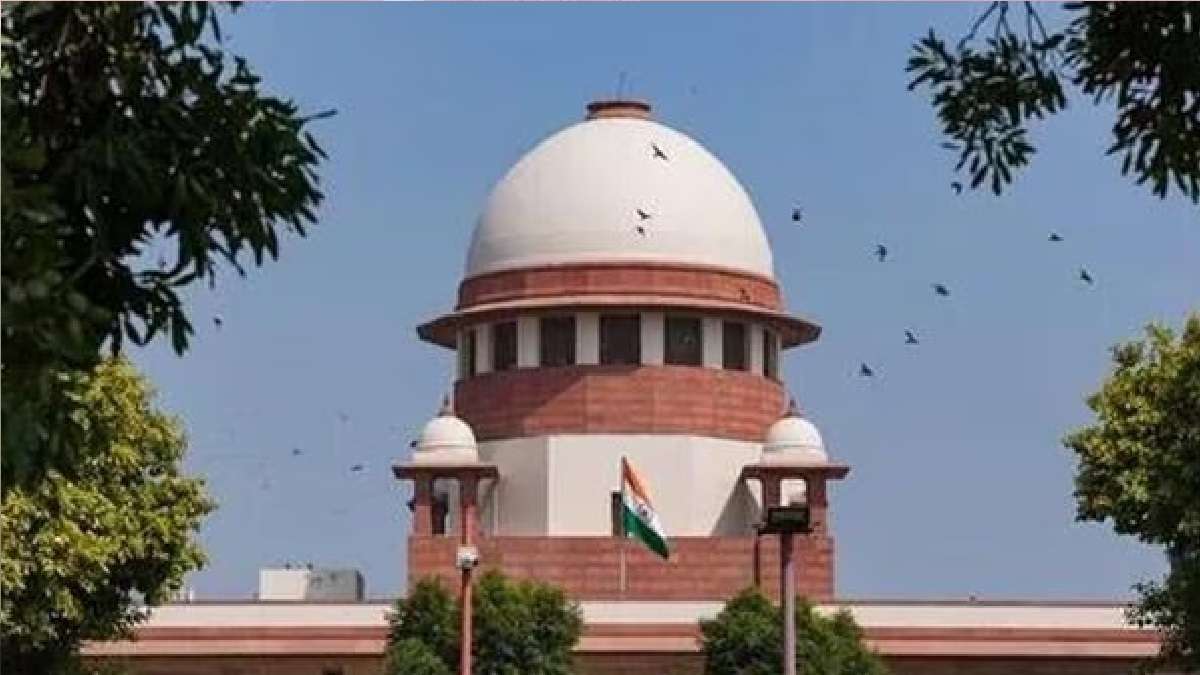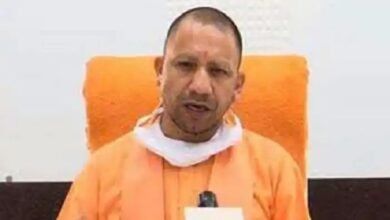[ad_1]

SC verdict on Article 370: The Supreme Court pronounced its verdict on Monday on a batch of petitions challenging the abrogation of the provisions of Article 370. The Centre on August 5, 2019 abrogated the provisions of Article 370 of the Constitution, which bestowed a special status on the erstwhile state of Jammu and Kashmir. The petitioners appealed to the top court to examine whether the Centre’s move was constitutionally valid.
A five-judge Constitution bench headed by Chief Justice DY Chandrachud delivered the apex court verdict. The court in a majority judgment said the President’s order to scrap Jammu and Kashmir’s special status is constitutionally valid.
Jammu and Kashmir Assembly elections deadline
“We direct that steps shall be taken by the Election Commission of India to conduct elections to the Legislative Assembly of Jammu and Kashmir constituted under Section 14 of the Reorganisation Act by 30 September 2024. Restoration of statehood shall take place at the earliest and as soon as possible,” the CJI said.
What did Chief Justice DY Chandrachud say?
The CJI said whether the Presidential rule imposed in December 2018 and subsequent extensions were valid. CJI DY Chandrachud said there were three judgments by the five-judge bench on the issue.
The argument of the petitioners is that the Parliament can only make the law-making powers of the State when the Presidential rule is in force is ‘not accepted’, said the CJI.
The argument of petitioners that the Union cannot take actions of irreversible consequences in the State during Presidential rule is ‘not accepted’, he added.
“Every decision taken by Union on behalf of State during Presidential rule not open to challenge. This will lead to the administration of the state to a standstill. Whether the Presidential Proclamation valid. The court need not adjudicate on this since the petitioners did not challenge it. And in any case, it was withdrawn in Oct 2019,” the CJI said.
The CJI said the State of Jammu and Kashmir became an integral part of India is evident from Articles 1 and 370 of the Constitution of India.
The Constitutional set-up did not indicate that Jammu and Kashmir retained sovereignty, he added.
“There is a clear absence in the Constitution of Jammu and Kashmir to the reference of sovereignty. The Proclamation of Maharaja stated that the Constitution of India will supersede. With this, the para of Instrument of Accession ceases to exist. Whether Jammu and Kashmir retained an element of sovereignty or internal sovereignty when it joined the Union of India. We have held no,” he added.
The history shows the gradual process of constitutional integration was not going on, he added.
“It was not as if after 70 years of Constitution of India was applied in one go. It was a culmination of the integration process. We have held that all provisions of the Constitution of India can be applied to J&K using Article 370(1)(d) in one go,” the CJI said.
According to the cause list for December 11 (Monday), uploaded on the apex court’s website, the other members of the bench are Justices Sanjay Kishan Kaul, Sanjiv Khanna, BR Gavai and Surya Kant.
The CJI said we do not find the use of Presidential power to issue CO 273 was malafide. Thus we hold the exercise of Presidential Power to be valid, he added.
He added the recommendation of the Constituent Assembly of Jammu and Kashmir was not binding on the President of India.
“Interpretative clause cannot be used to bypass the specific route for a constitutional amendment. Permitting such amendments by such a surreptitious method would be disastrous,” he said.
What did Justice Sanjay Kishan Kaul say?
Justice Sanjay Kishan Kaul, while reading out his judgment (concurring), said he had started with a historical background and his conclusions were more or less the same, except in one issue, regarding Prem Nath Kaul case, he had taken a different route.
He said the purpose of Article 370 was to slowly bring Jammu and Kashmir on par with the other States of India. The requirement of recommendation of Jammu and Kashmir constituent Assembly cannot be read in a manner that makes the larger intention redundant, he added.
Security tightened across Kashmir ahead of SC verdict on Article 370
The authorities strengthened security arrangements in sensitive parts of Jammu and Kashmir, especially in the summer capital Srinagar and adjoining areas, officials said.
Leaders of the People’s Democratic Party (PDP) headed by former Chief Minister Mehbooba Mufti claimed to have been placed under house arrest, while certain restrictions were also placed on Gupkar Road housing the residence of prominent leaders including former Chief Minister Omar Abdullah.
Mehbooba’s daughter Iltija Mufti said they have been placed under house arrest with a posse of policemen deployed at their Khimber residence on the outskirts of the city.
The police, however, neither confirmed nor denied the development which came just a few hours before the expected judgement of the Supreme Court on the constitutional validity of the Centre’s decision to abrogate controversial Article 370 in August 2019.
“This is totally baseless. No one has been put under house arrest or arrested due to political reasons in J&K. It is an attempt to spread rumours,” Jammu and Kashmir LG Manoj Sinha said on reports of leaders put under arrest.
Verdict to be announced after 16-day hearing
The apex court reserved its verdict in the matter on September 5 after a 16-day hearing.
Who did argue in the court for the Centre?
The Supreme Court heard Attorney General R Venkataramani, Solicitor General Tushar Mehta, senior advocates Harish Salve, Rakesh Dwivedi, V Giri and others on behalf of the Centre and the intervenors defending the abrogation of the provisions of Article 370.
Advocates on behalf of petitioners
Senior advocates, including Kapil Sibal, Gopal Subramanium, Rajeev Dhavan, Zaffar Shah and Dushyant Dave, had argued on behalf of the petitioners.
Argument on constitutional validity of abrogation
The lawyers had dwelt on various issues, including the constitutional validity of the Centre’s decision to abrogate the provisions of Article 370, the validity of the Jammu and Kashmir Reorganisation Act, which split the erstwhile state into two Union territories, challenges to the imposition of the governor’s rule in Jammu and Kashmir on June 20, 2018 and the imposition of the president’s rule on December 19, 2018 and its extension on July 3, 2019.
The petitions challenging the abrogation of the provisions of Article 370 and the validity of the Jammu and Kashmir Reorganisation Act, 2019 that divided the erstwhile state into the Union territories of Jammu and Kashmir and Ladakh were referred to the Constitution bench in 2019.
The arguments in the matter had commenced on August 2.
During the hearing, the apex court had asked who can recommend the revocation of Article 370 in Jammu and Kashmir when no constituent Assembly, the concurrence of which is required before taking such a step, exists there.
The top court had also asked how can a provision (Article 370), which was specifically mentioned as temporary in the Constitution, become permanent after the tenure of the Jammu and Kashmir constituent Assembly came to an end in 1957.
Some of the petitioners opposing the repeal of Article 370 had argued that the provision could not have been abrogated as the term of the Jammu and Kashmir constituent Assembly ended in 1957 after it drafted the erstwhile state’s Constitution.
With the constituent Assembly having become extinct, Article 370 acquired a permanent status, they had said.
The Centre had argued that there was no “constitutional fraud” in annulling the provision that accorded the special status to the erstwhile state of Jammu and Kashmir.
(With PTI inputs)
[ad_2]



